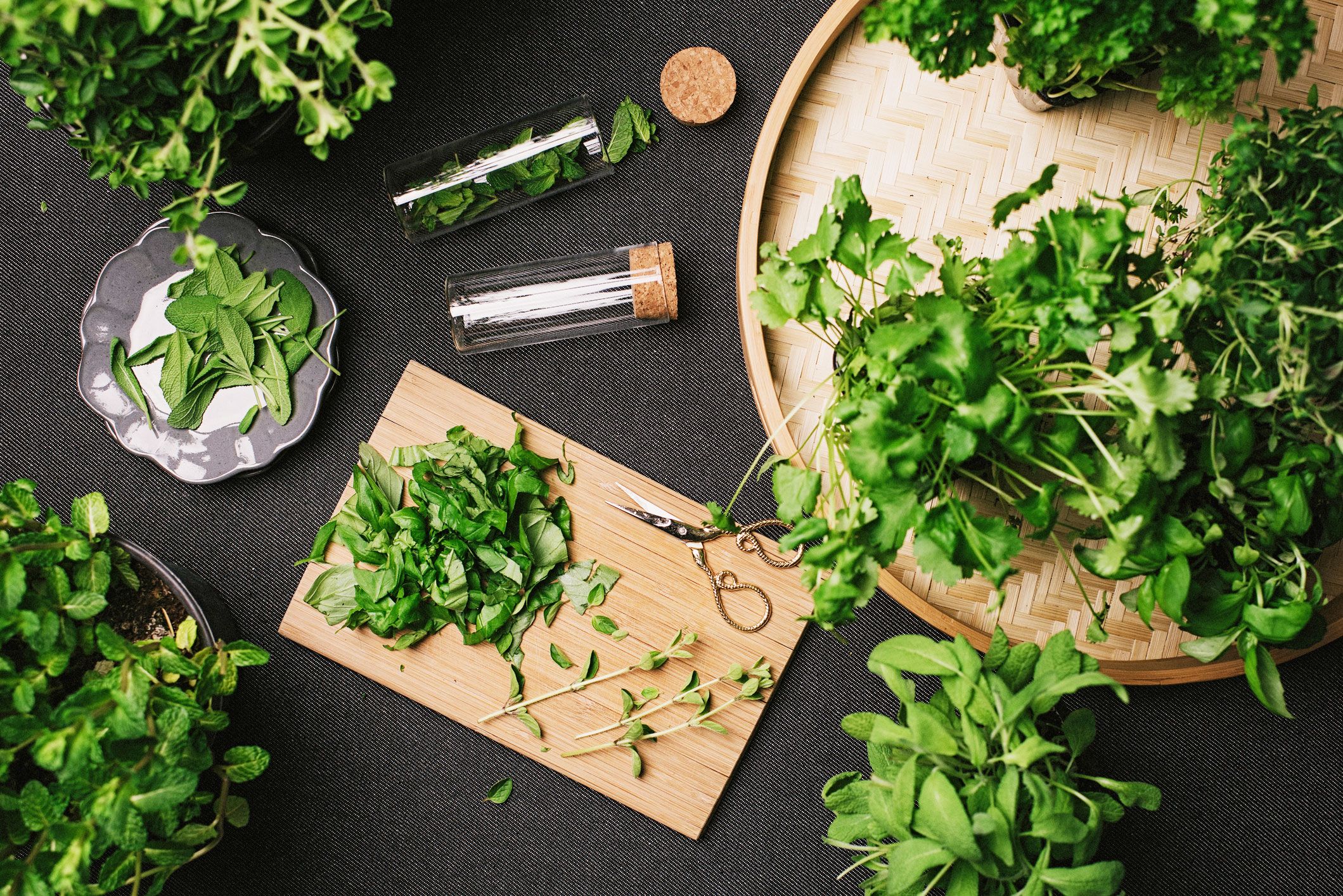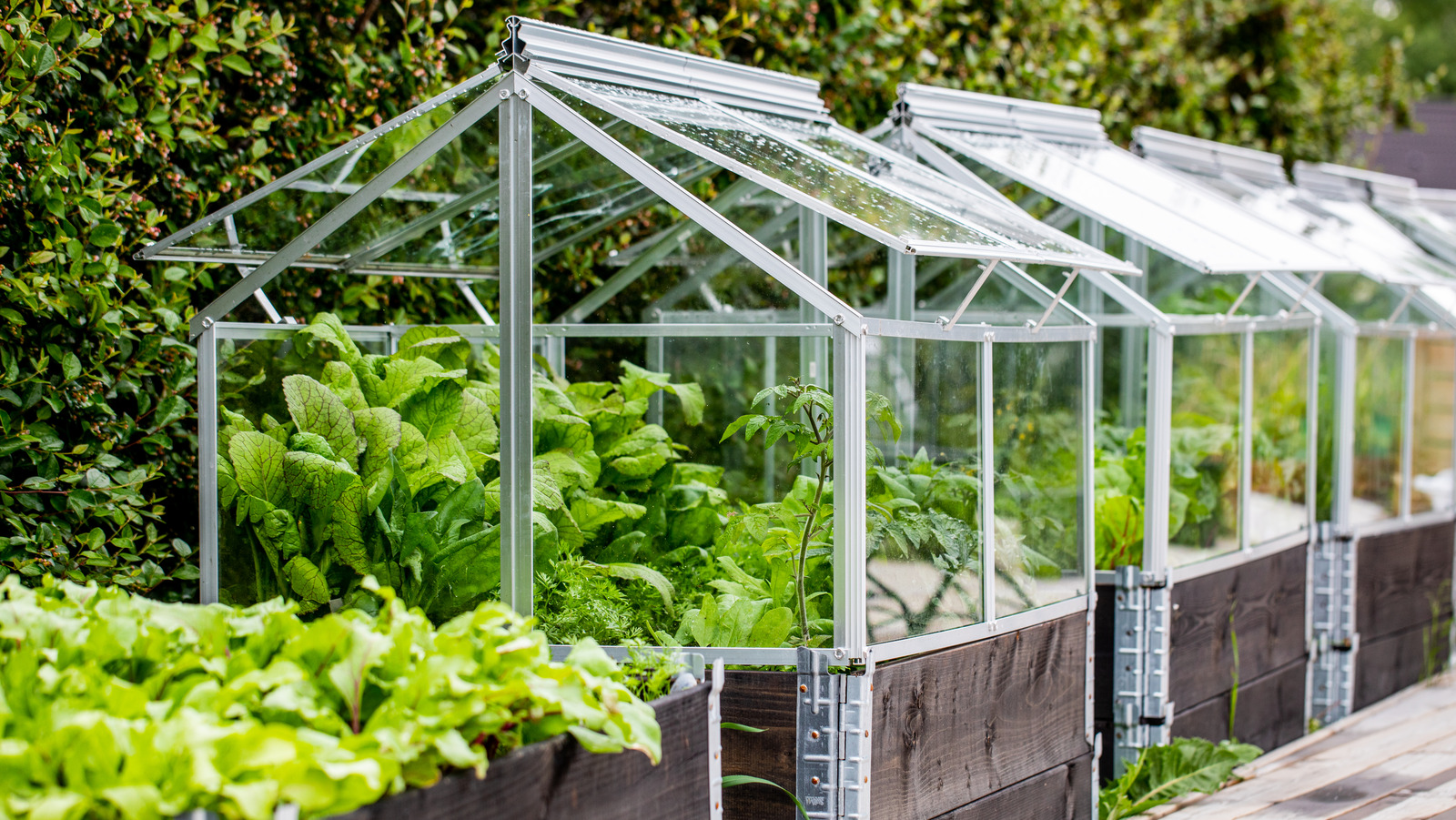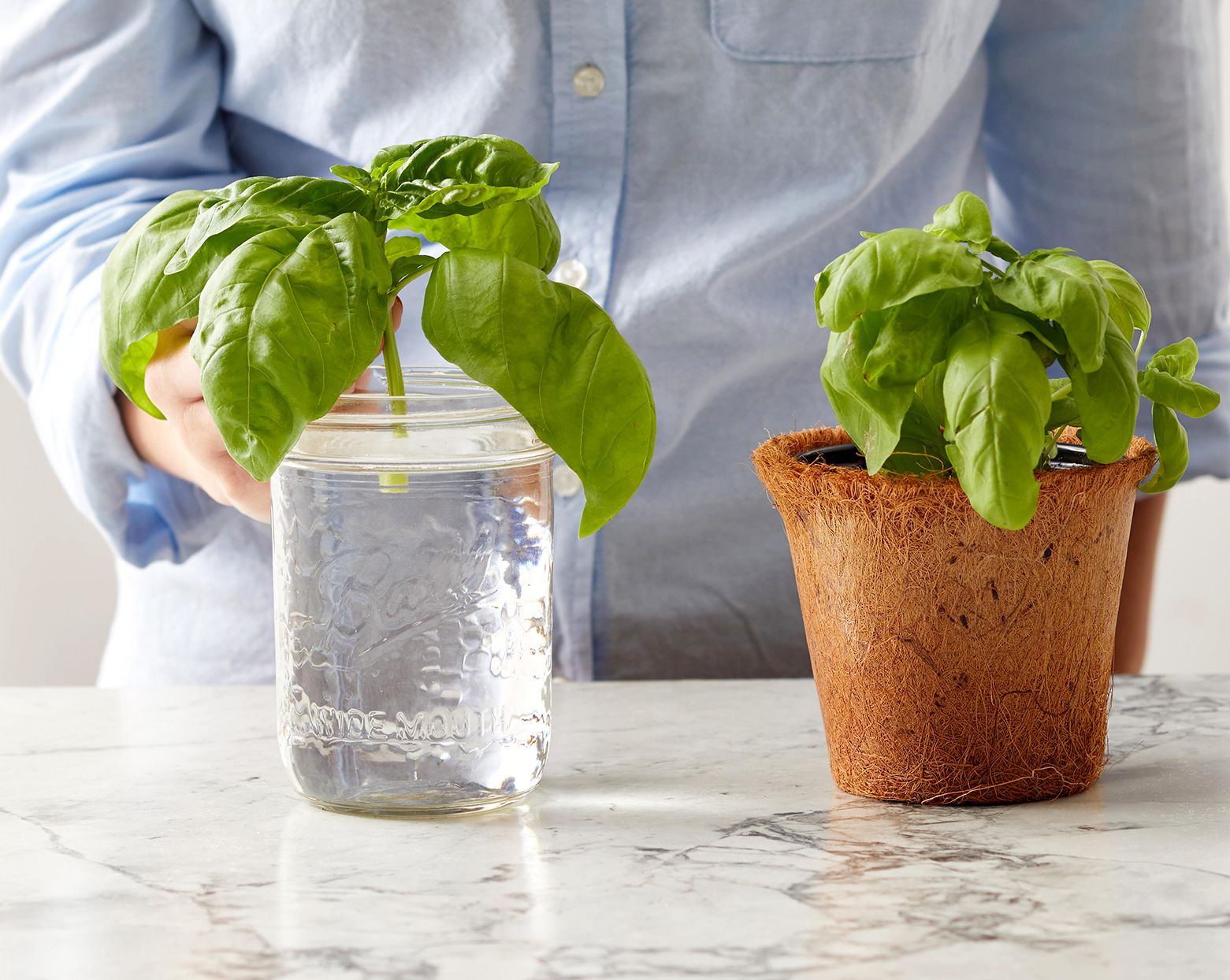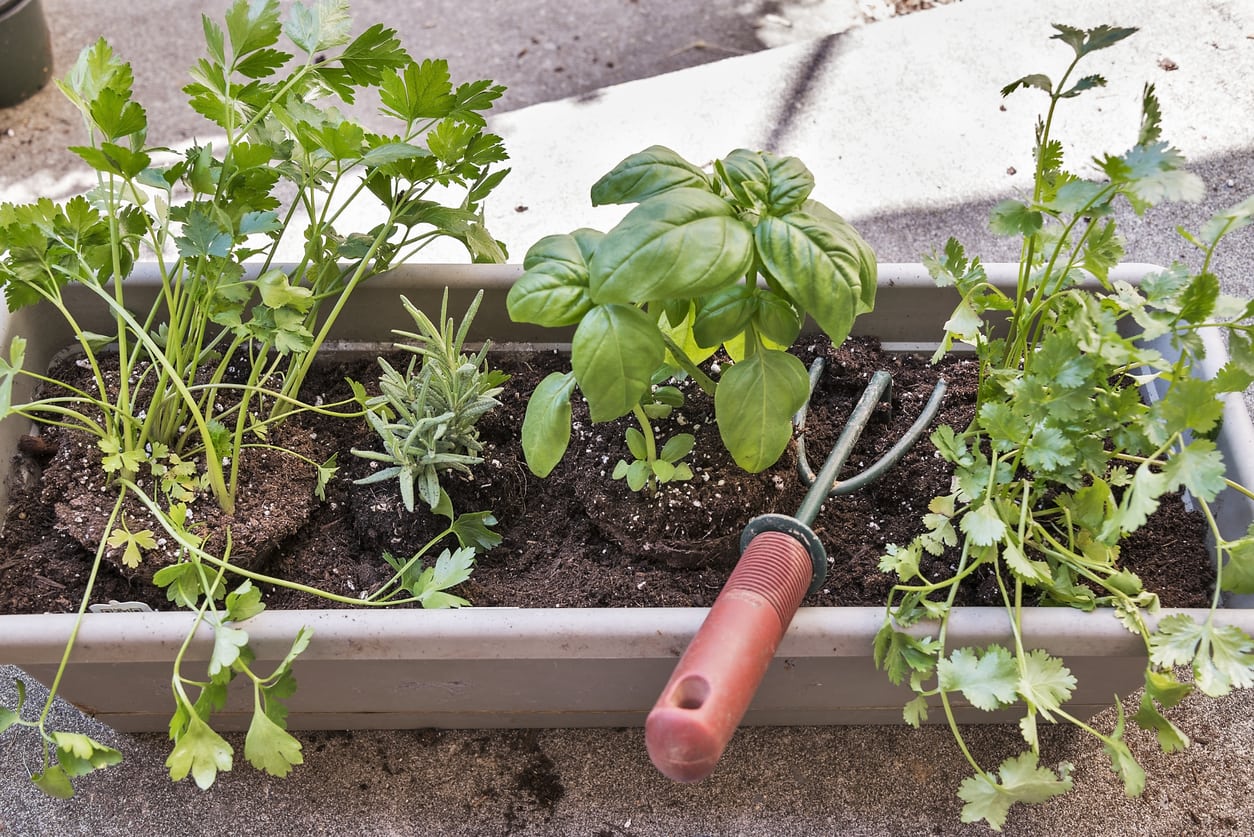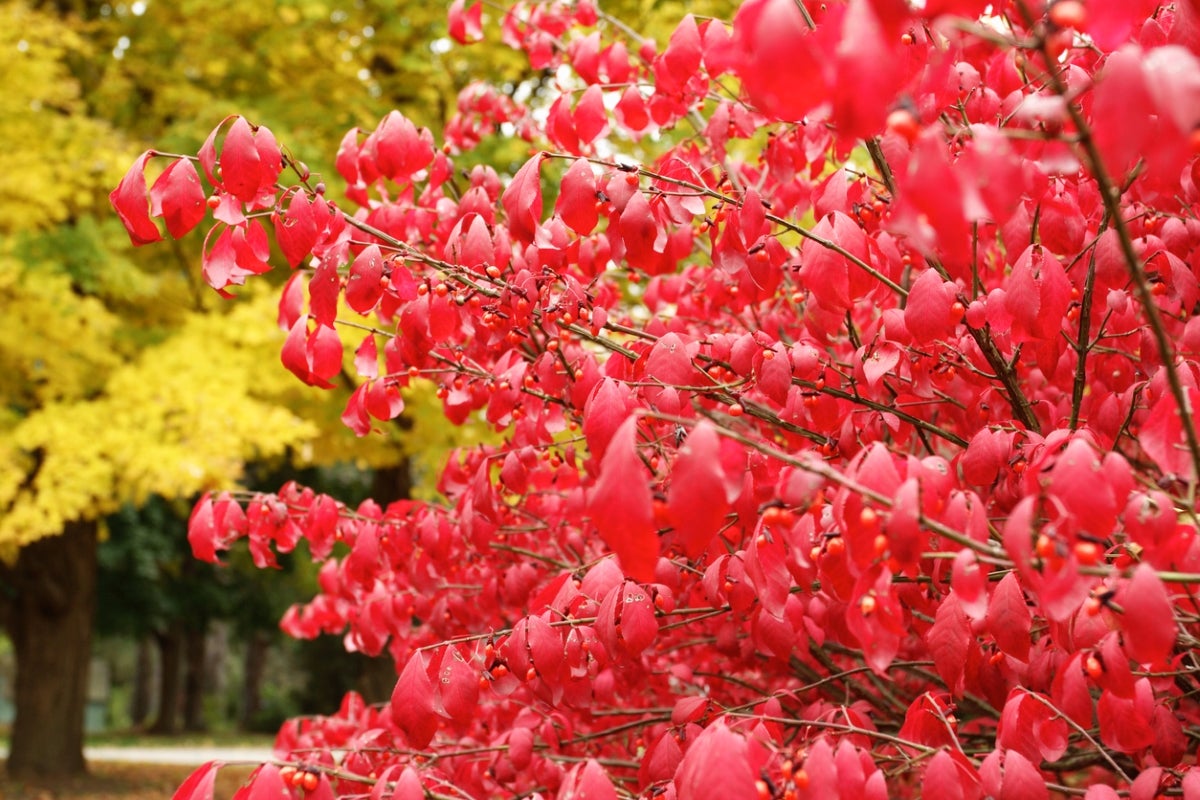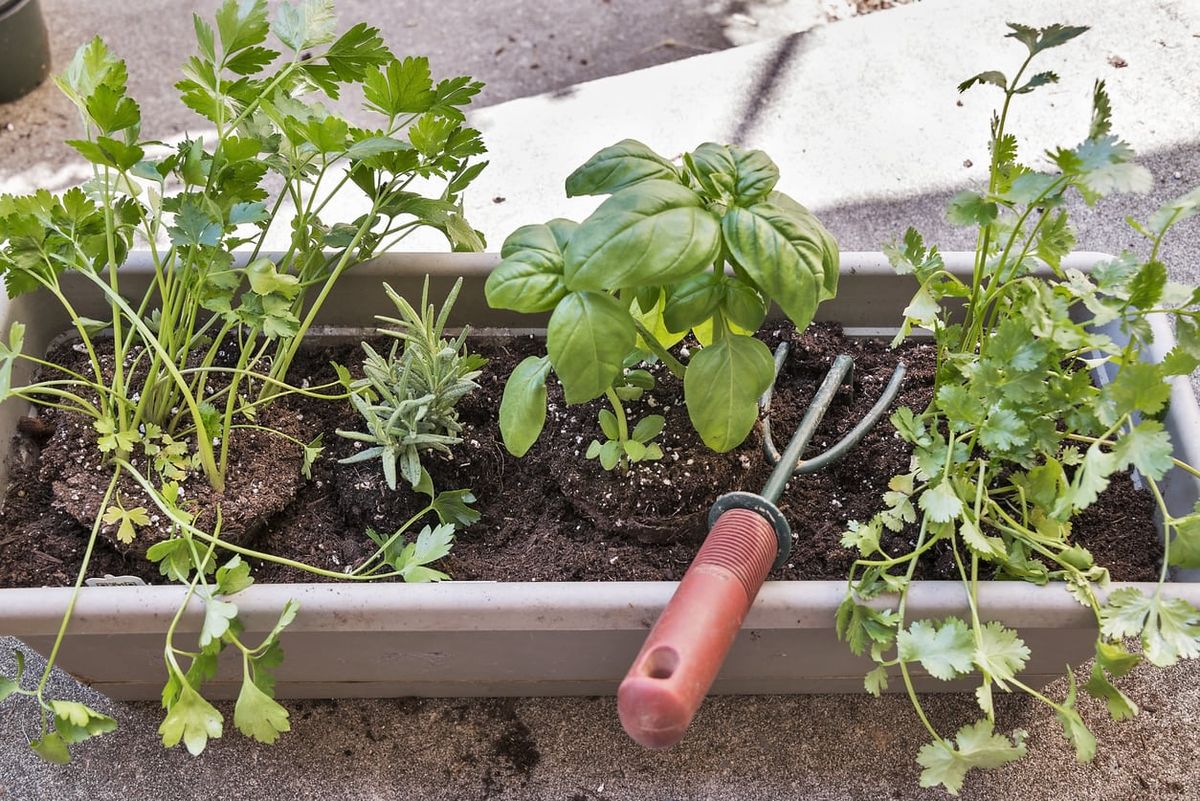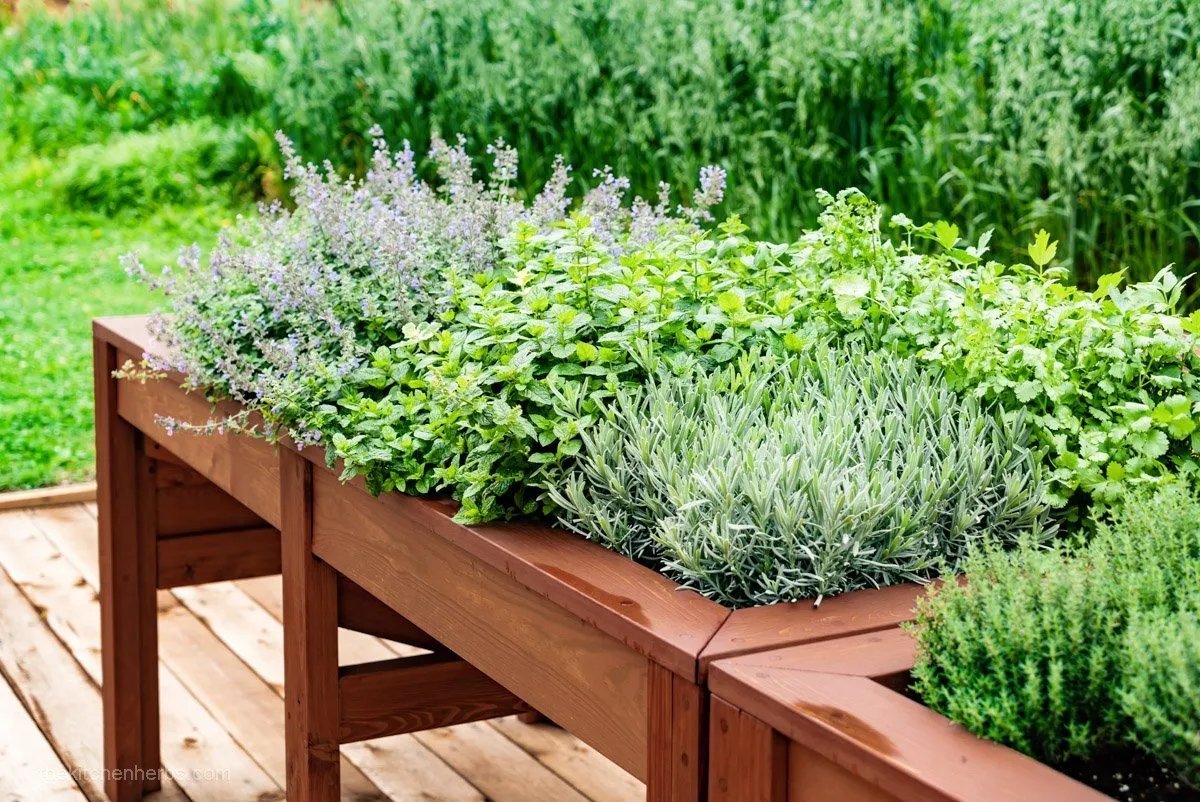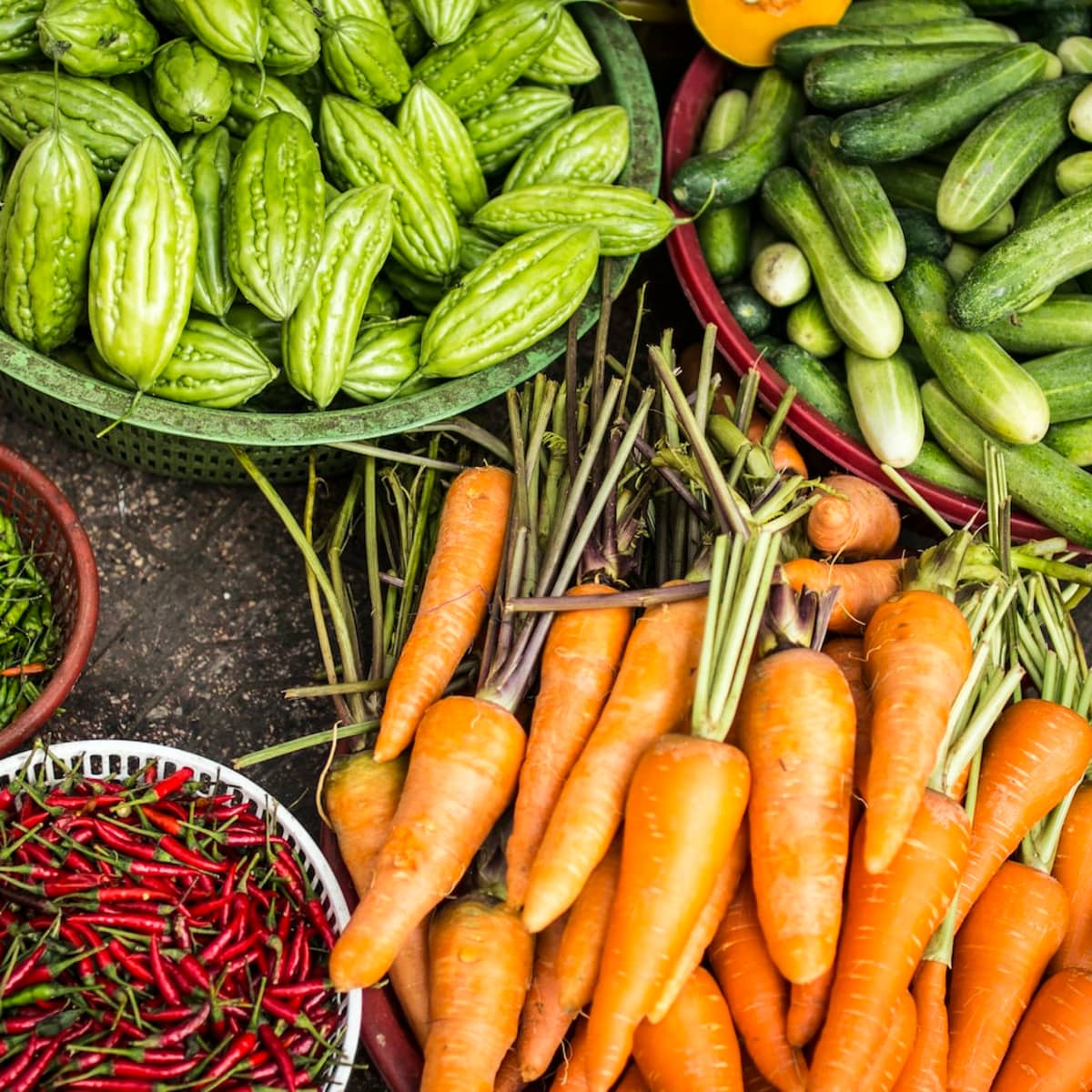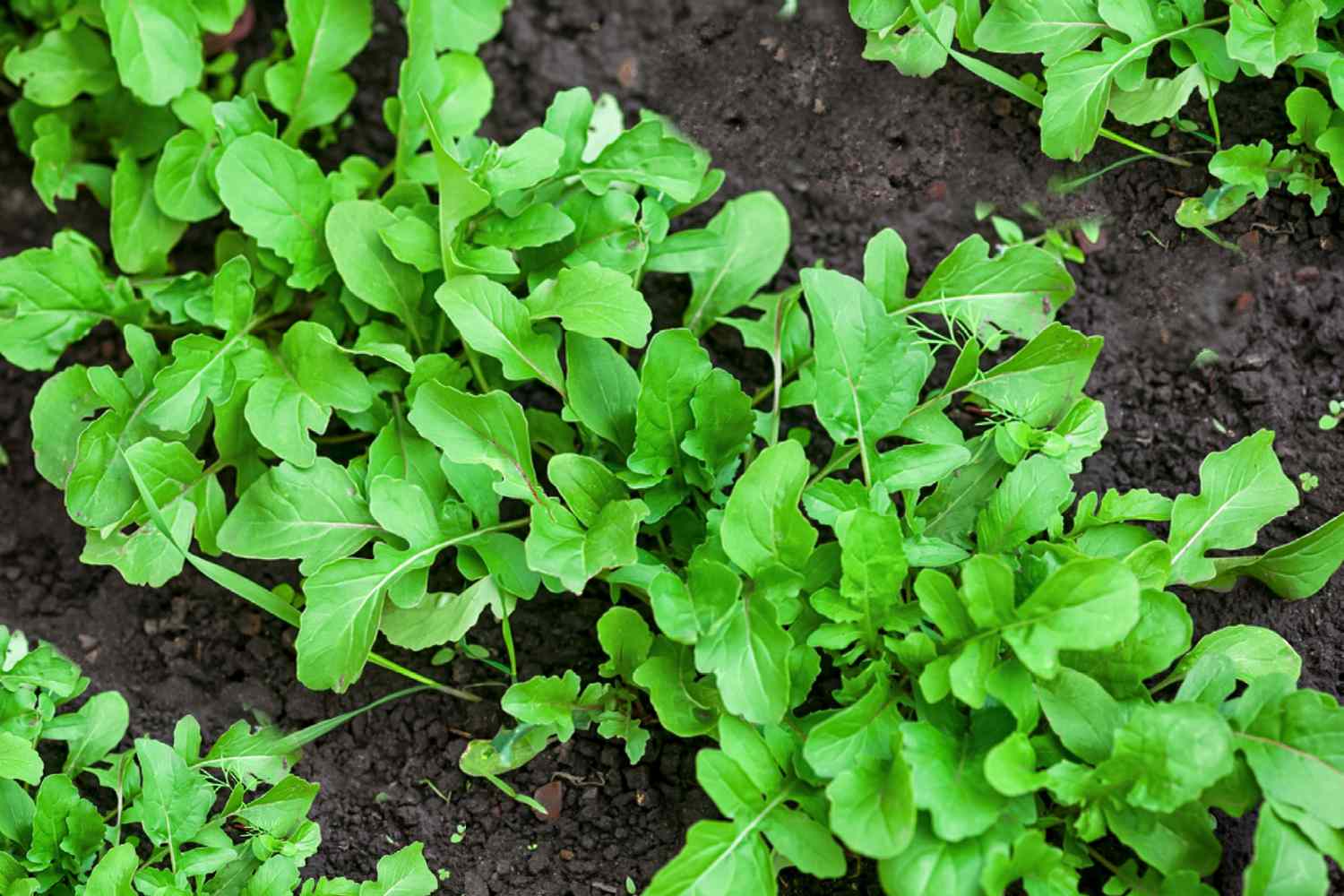Home>Gardening News and Trends>Gardening Trends>What Herbs Can Be Planted With Dill
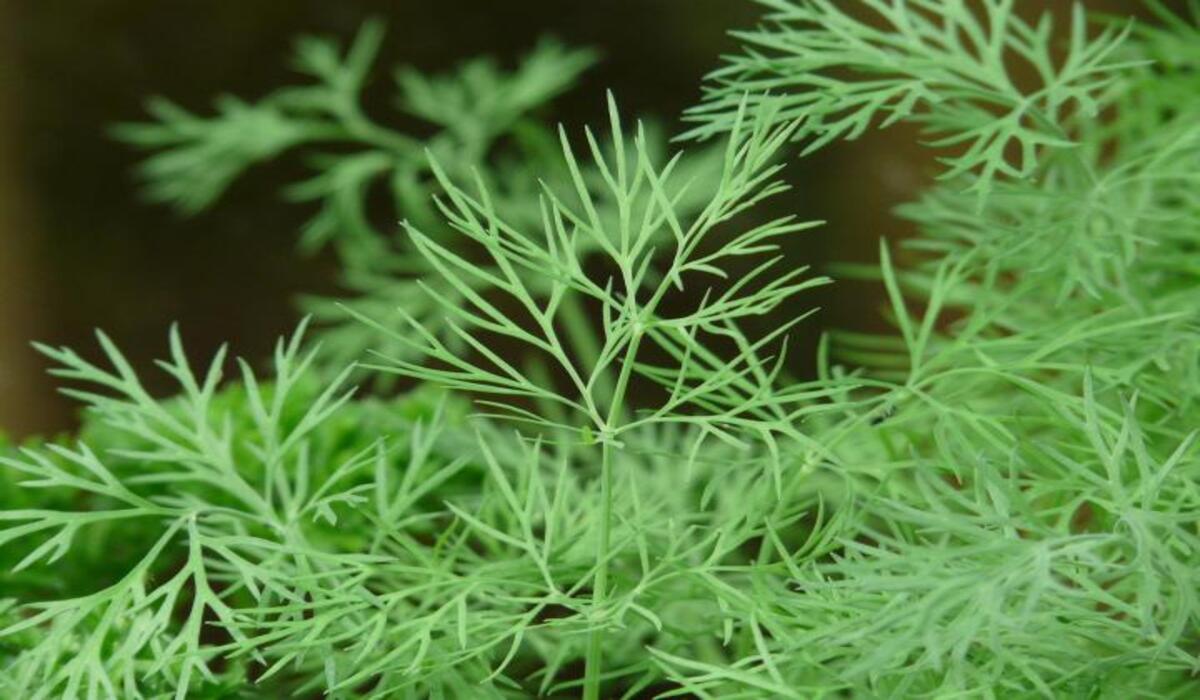

Gardening Trends
What Herbs Can Be Planted With Dill
Modified: January 22, 2024
Discover the latest gardening trends and find out which herbs can be planted alongside dill for a thriving and aromatic garden.
(Many of the links in this article redirect to a specific reviewed product. Your purchase of these products through affiliate links helps to generate commission for Chicagolandgardening.com, at no extra cost. Learn more)
Table of Contents
Introduction
Welcome to the wonderful world of gardening! If you’re a passionate gardener or someone looking to start their own herb garden, you’ve come to the right place. Herbs have long been cherished for their aromatic fragrance and culinary uses. One herb that stands out for its versatility and unique flavor is dill. Known for its feathery leaves and distinctive taste, dill is a popular choice among plant enthusiasts.
When it comes to gardening, it’s not just about individual plants thriving; it’s also about creating harmonious pairings that benefit each other. Companion planting is a practice where different plants are strategically placed together to enhance growth and protect against pests. This technique has been used for centuries to optimize yields and maintain a healthy garden ecosystem.
In this article, we’ll explore the world of companion herbs for dill. You’ll discover the herbs that can be planted alongside dill to create a thriving and productive herb garden. We’ll also discuss herbs to avoid planting with dill and delve into the benefits of pairing dill with certain herbs. Whether you’re a seasoned gardener or just getting started, these insights will help you make informed decisions and create a flourishing herb garden.
Companion Herbs for Dill
When it comes to companion planting, dill has quite a few herbs that thrive alongside it. These companion herbs not only complement dill in terms of growth habits and soil requirements but also provide additional benefits such as pest control and improved flavor profiles.
1. Basil: Basil is an excellent companion for dill as it helps repel pests like aphids and mosquitoes. Additionally, the aromatic oils in basil enhance the flavor of dill, making this combination a winning pair in the garden and the kitchen.
2. Parsley: Parsley is a versatile herb that grows well with dill. Both herbs have similar water and sunlight needs, and their roots systems complement each other, reducing competition for nutrients. Planting parsley with dill also attracts beneficial insects like hoverflies and parasitic wasps that help control garden pests.
3. Mint: Mint is known for its strong aroma which acts as a natural deterrent against pests such as aphids and ants. Planting mint near dill provides a protective barrier for your herb garden. However, it’s important to contain mint in a pot or use barriers to prevent its invasive nature from taking over the garden.
4. Chives: Chives and dill are a perfect match in terms of flavor and growth habits. Chives help repel pests and attract bees and butterflies to your garden, aiding in pollination. These two herbs can be planted together in close proximity, creating a visually appealing and bountiful herb bed.
5. Coriander: Coriander (also known as cilantro) is a cool-season herb that pairs well with dill. Both herbs flourish in similar conditions, requiring well-drained soil and moderate sunlight. By planting coriander with dill, you can maximize the use of limited garden space and enjoy a diverse range of flavors in your culinary adventures.
6. Thyme: Thyme is a perennial herb that complements dill in terms of growth and flavor. It has antimicrobial properties that can help protect your herb garden from fungal diseases. Planting thyme with dill not only provides a visually interesting combination but also enhances the overall health of your garden.
These are just a few examples of companion herbs that go well with dill. Remember to consider factors like sunlight, soil, and compatibility when planning your herb garden. By choosing the right companions for dill, you can create a thriving ecosystem that benefits all the plants and enhances your gardening experience.
Herbs to Avoid Planting with Dill
While there are many herbs that make great companions for dill, there are a few that should be avoided to ensure the optimal growth and health of your dill plants. It’s important to consider their growth habits, nutrient requirements, and potential negative interactions when selecting plants to avoid planting with dill.
1. Fennel: Fennel and dill are both members of the Apiaceae family, and planting them together can lead to cross-pollination. This can negatively impact the flavor and quality of both plants. It’s best to keep fennel and dill separated to maintain the distinct taste and characteristics of each herb.
2. Cilantro: Cilantro and dill are often confused due to their similar appearance and taste. Planting them together can lead to cross-pollination and result in hybrid plants with unpredictable flavors. To avoid any confusion and maintain the unique flavors of each herb, it’s recommended to keep cilantro and dill separate.
3. Oregano: Oregano is known for its aggressive growth habit and can easily overshadow and inhibit the growth of dill. Both herbs have different moisture and sunlight requirements, making them less compatible when planted together. It’s best to give dill enough space and avoid planting oregano nearby.
4. Rosemary: Rosemary is a woody perennial with a vigorous growth habit that can overpower and stunt the growth of dill. Rosemary prefers well-drained soil and drier conditions, while dill thrives in slightly moist soil. Planting them in close proximity can result in competition for resources, leading to weakened growth for both plants.
5. Sage: Sage is another herb with strong growth and a tendency to crowd out other plants. It can hinder the growth of dill and negatively impact its overall health. Sage requires well-drained soil and ample sunlight, while dill prefers slightly moist soil and moderate sunlight. It’s best to give dill its own space away from sage for optimal growth.
By avoiding planting these herbs alongside dill, you can ensure that your dill plants have enough space, nutrients, and optimal growing conditions to thrive. Remember to consider the specific needs of each herb and plan your garden accordingly to create a harmonious and productive herb bed.
Benefits of Planting Dill with Certain Herbs
Pairing dill with specific herbs in your garden can offer numerous benefits that go beyond simply enhancing the visual appeal of your herb bed. Let’s explore some of the advantages of planting dill alongside certain herbs:
1. Natural Pest Control: Dill has natural pest-repellent properties that help protect nearby plants from harmful insects. By planting dill with herbs like basil, parsley, and chives, you can create a natural barrier against pests and reduce the need for harmful pesticides.
2. Improved Flavor: Many herbs have complementary or enhancing flavors when paired with dill. The combination of dill and basil, for example, can create a delightful taste in various dishes. Experimenting with herb pairings can lead to exciting flavor profiles and elevate your culinary creations.
3. Enhanced Pollination: Some herbs, such as chives and coriander, attract beneficial insects like bees and butterflies. These insects aid in pollination, which is essential for the reproduction and fruiting of plants. By planting dill alongside these pollinator-attracting herbs, you can increase the overall pollination rate in your garden.
4. Space Optimization: Planting dill with compatible herbs allows you to make efficient use of limited garden space. Rather than growing dill plants individually, you can maximize the space by planting companion herbs around the dill, creating a visually appealing and productive herb bed.
5. Soil Enhancement: Certain herbs have the ability to improve the condition and fertility of the soil. For example, mint has roots that release essential oils into the soil, acting as a natural herbicide and promoting healthy soil microbial activity. Planting mint with dill can create a mutually beneficial relationship, with mint improving the soil while dill provides pest protection.
6. Aesthetic Appeal: Pairing dill with other herbs not only enhances the functionality of your herb garden but also adds visual interest. Consider the varying heights, textures, and colors of different herbs to create an aesthetically pleasing arrangement.
By strategically selecting companion herbs for dill, you can create a harmonious and productive herb garden that offers a range of benefits. From natural pest control and improved flavors to enhanced pollination and aesthetic appeal, the combination of dill and compatible herbs can greatly enhance your gardening experience.
Tips for Successful Herb Pairings with Dill
Pairing dill with other herbs requires careful planning and consideration to ensure successful growth and optimal benefits. Here are some tips to help you create successful herb pairings with dill in your garden:
1. Understand Herb Requirements: Before selecting companion herbs for dill, it is important to understand the specific growth requirements of each herb. Consider factors such as sunlight, water needs, soil pH, and spacing requirements to ensure compatibility.
2. Complement Growth Habits: Choose companion herbs that have similar growth habits. This will allow them to grow harmoniously together without competing for space, nutrients, or sunlight. Avoid pairing herbs with aggressive growth habits that can overshadow or inhibit the growth of dill.
3. Consider Companion Planting Guides: Consult companion planting guides or resources to gain insights into which herbs pair well with dill. These guides often provide valuable information on compatible herbs and the specific benefits they offer when planted together.
4. Rotate Companion Herbs: Consider alternating companion herbs throughout the growing season. By rotating the types of herbs planted alongside dill, you can avoid depleting the soil of specific nutrients and reduce the risk of pest and disease buildup. This practice also promotes overall garden health and productivity.
5. Monitor Moisture Levels: Pay attention to the moisture requirements of both dill and its companion herbs. Aim for a balance in watering to ensure that neither plant is over or under-watered. This will help prevent issues such as root rot or nutrient imbalances.
6. Harvest and Prune Regularly: Regularly harvest dill and its companion herbs to promote healthy growth and prevent overcrowding. Pruning encourages new growth and helps maintain the desired shape and size of the plants. Proper spacing also allows for better air circulation, reducing the risk of fungal diseases.
7. Observe and Adjust: Pay attention to the performance of your herb pairs and make adjustments as needed. If certain herbs are not thriving or are causing issues with dill, consider replanting or repositioning them. Gardening is a learning process, and it may take some trial and error to find the best herb combinations for your specific garden.
By following these tips, you can ensure successful herb pairings with dill and create a thriving and harmonious herb garden in your backyard. Remember to prioritize the specific requirements of each herb, monitor their growth, and make adjustments as needed to achieve the best results.
Conclusion
Gardening is a rewarding and fulfilling activity, especially when it comes to herb gardening. By understanding the art of companion planting, you can maximize the potential of your herb garden and create a thriving ecosystem. Dill, with its distinct flavor and feathery foliage, is a versatile herb that can benefit from strategic pairings with other herbs.
In this article, we explored the world of companion herbs for dill, discovering which herbs make great plant companions and why. Basil, parsley, mint, chives, coriander, and thyme are just a few examples of herbs that complement dill in terms of growth habits, flavor enhancement, and pest control.
We also discussed herbs to avoid planting with dill, such as fennel, cilantro, oregano, rosemary, and sage. Considering the specific needs and potential negative interactions of these herbs can help ensure the optimal growth and health of your dill plants.
In addition, we highlighted the benefits of planting dill with certain herbs, including natural pest control, improved flavors, enhanced pollination, soil enhancement, and aesthetic appeal. These advantages not only contribute to the overall health and productivity of your herb garden but also provide a diverse range of culinary experiences.
Finally, we provided tips for successful herb pairings with dill, emphasizing the importance of understanding each herb’s requirements, complementing growth habits, utilizing companion planting guides, rotating companion herbs, monitoring moisture levels, and regularly pruning and harvesting.
By implementing these tips and exploring the world of companion herbs for dill, you can create a flourishing herb garden that not only adds beauty to your outdoor space but also provides a bountiful harvest and a myriad of culinary possibilities.
So go ahead, plant your dill alongside compatible herbs, and enjoy the benefits of a well-planned and harmonious herb garden!
